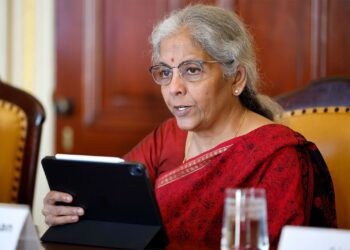With the view to interlinking, storing and accessing multiple IDs via one unique ID, India’s Ministry of Electronics and Information Technology (MeitY) has proposed a new model of ‘Federated Digital Identity.’
A draft proposal by the Ministry suggested that the One Unique ID will empower the citizen by putting them in control of these identities and providing the option of choosing which one to use for which purpose. The proposal is expected to soon be in the public domain and the Ministry will seek comments by February 27.
Streamlining: The umbrella digital identity
The problem is simple – A different Identity for a different purpose. Streamlining and simplifying this could be a way out. The umbrella digital identity could do away with the need for repeated verification. This is under an updated framework of the India Enterprise Architecture which also envisages an IT framework under which states and Centre, public and private entities can go beyond their boundaries.
According to the proposed framework the ‘federated digital identity’ would also serve as a key to a registry where all different state and Central identities could be stored. Citizens can use the digital ID for availing of other third-party services through authentication and consented eKYC.
The proposal has been moved under the India Enterprise Architect (InDEA) 2.0.
India Digital Ecosystem Architecture 2.0:
India Digital Ecosystem Architecture or InDEA 2.0 is a framework that enables Governments and private sector enterprises to design IT architectures that can span beyond their organizational boundaries and enable the delivery of holistic and integrated services to the customers. InDEA 2.0 is a framework that promotes the evolution of digital ecosystems. It consists of a set of principles and architectural patterns that inform, guide, and enable the development of large digital systems, with a focus on the public sector.
InDEA was first proposed and designed in 2017 to help align IT developments with the business vision of government organisations.
Critics may raise concerns about digital security, and an umbrella identity could pose more risks towards exposing critical data. However, the proposed idea is still at nascent stages, and its inner workings remain unclear.
Follow NRI Affairs on Facebook and Twitter for latest updates. Support us on Patreon.










